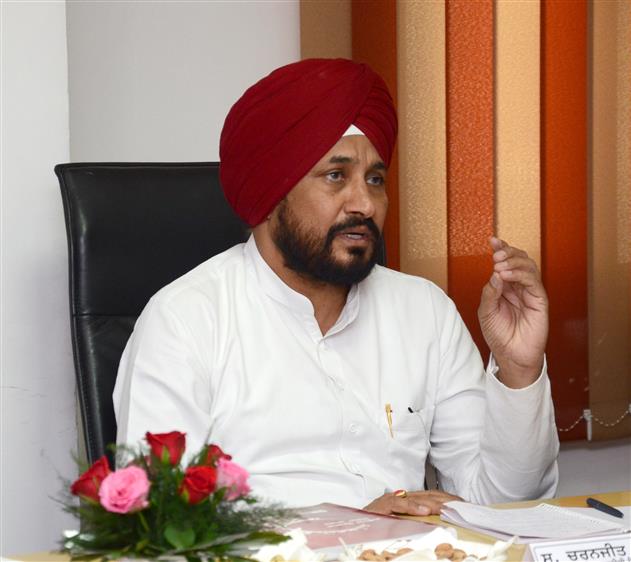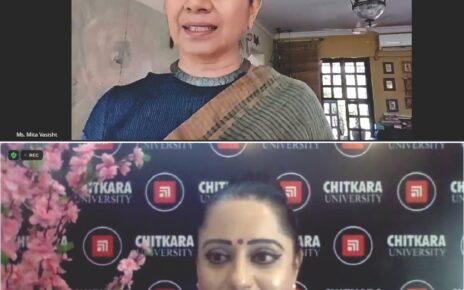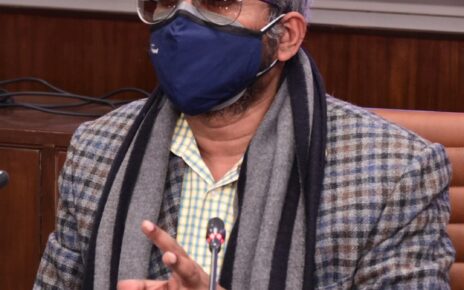In order to provide constructed houses to the Economically Weaker Section of the society across the state, the Punjab Cabinet on Tuesday approved invitation of applications for allotment of 25,000 EWS houses to be constructed by various Urban Development Authorities.
The applications for these houses along with necessary documents would be invited from the eligible applicants as per approved policy. The dwelling units would have carpet area of approx 30 sq. metres.This pro-poor scheme would be instrumental in benefitting nearly 25000 EWS families of the state, who do not own a dwelling unit will get ownership of the same for healthy and safer lifestyle.A decision to this effect was taken during a Cabinet meeting chaired by Chief Minister Charanjit Singh Channi here at Punjab Bhawan this evening.
According to a spokesperson of the Chief Minister’s Office, at present 397.048 acre land is available for EWS housing in all the development authorities viz. GMADA (233.588 acre), GLADA (73.29 acre), PDA (16.52 acre), BDA (13.48 acre), JDA (11.25 acre) and ADA (48.92 acre). M/S WAPCOS Ltd., a Public Sector Undertaking of GoI has been recently engaged through open selection process as Project Management Consultants (PMC) for this project for end to end execution of the project with basic steps including; developing web portal to invite applications; analysing market demand; preparation of DPR; monitoring of all construction activity; ensuring quality of the same and keeping a strict vigil until handing it over to respective RWA.In every EWS pocket, 80% of area will be for houses @ 85 units per acre, while 20% area will be left for a school, dispensary, playground and community centre.
Notably, Punjab EWS Housing policy was approved by Cabinet on March 9, 2021, as such 25,000 EWS houses would be constructed by the Special Urban Planning and Development Authorities under the Umbrella of Housing and Urban Development department.
OKAYS REDUCTION OF 10% SIMPLE INTEREST + 3% PENAL INTEREST ON OUTSTANDING DUES OF DEVELOPERS IN URBAN DEVELOPMENT AUTHORITIES
With a view to give relief to developers and boost Real Estate sector in the State, the Cabinet has decided to reduce 10% simple interest + 3% penal interest on outstanding dues of developers such as of EDC to 8.5% compounded annually in Urban Development Authorities. Besides, the Cabinet also decided to drop normal and penal rates of interest to 7.5% compounded annually and 10% compounded annually in future for new as well as ongoing projects.
APPROVES POLICIES ON PUNJAB FOOD GRAINS LABOUR & CARTAGE, 2022 AND PUNJAB FOOD GRAINS TRANSPORTATION, 2022
Keeping in view the ensuing procurement season for the year 2022-23, beginning from April 1, 2022, the Cabinet has approved the Punjab Food Grains Labour & Cartage Policy and the Punjab Food Grains Transportation Policy for the year 2022 for labour & cartage and transportation of food grains from mandis to its storage points respectively.Under both the policies approved by the Cabinet, the labour and cartage work besides transportation of foodgrains would be allocated through a competitive and transparent online tender system.Pertinently, the Food, Civil Supplies and Consumer Affairs department procures food grains through its procurement agencies and Food Corporation of India, from various designated centres/mandis.
EXEMPTS STAGE CARRIAGE VEHICLES AND BUSES OF RELIGIOUS ORGANIZATIONS FROM MOTOR VEHICLE TAX DURING COVID-19 PANDEMIC
In a bid to relieve the transport sector from huge financial loss suffered due to lockdown imposed during the second phase of Covid-19, the Cabinet approved exemption from Motor Vehicle Tax to contract carriage vehicles (upto 16 seater), buses of religious organizations and stage carriage buses (upto 35 seater).With these decisions, the existing rates would be reduced from Rs. 30,000 to Rs. 20,000 per bus per year for all types of stage carriage buses (upto 35 seats, private/STUs) and to withdraw 5% annual increase in the rate of Motor Vehicle Tax. Besides, giving exemption from Motor Vehicle Tax to contract carriages upto 16 seater from May 20, 2020 to December 31, 2020 and buses of religious places from March 23, 2020 to December 31, 2020.
Notably, there was hardly any sector which was not affected amid Covid-19 pandemic. Resultantly, very few passengers could travel in these buses due to fear amongst the masses for which they preferred travelling in their private vehicles instead of using the public transport.
Various representations were received from the private transporters through which they highlighted the issue that rising prices of diesel has further deteriorated the situation as the entire income generated from buses is spent in meeting the expenses on diesel and maintenance.



